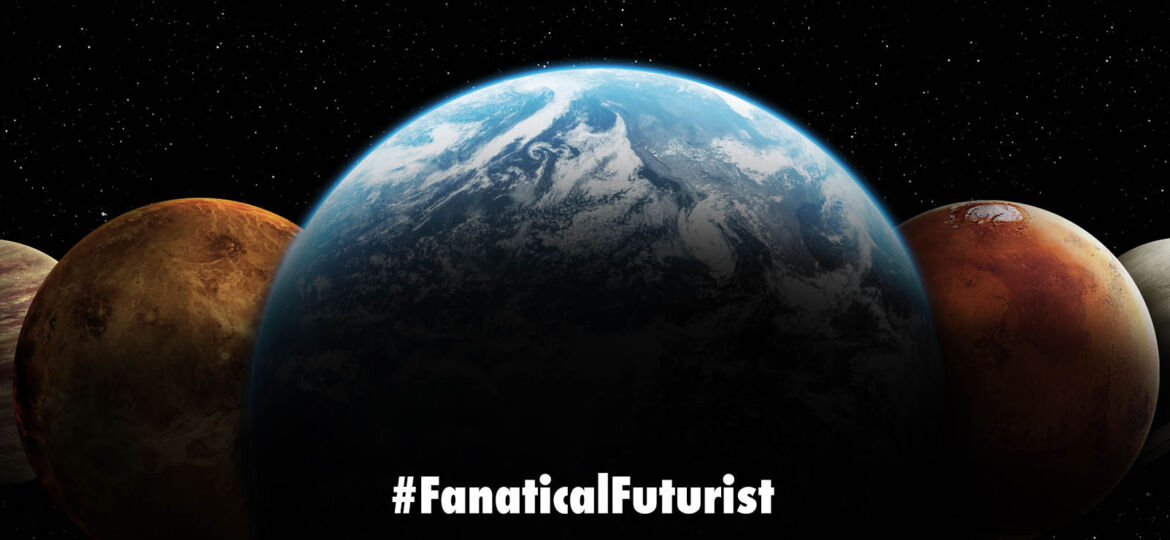
WHY THIS MATTERS IN BRIEF
In a few years time you won’t be able to tell if you’re talking to a digital human or a real human online …
 Love the Exponential Future? Join our XPotential Community, future proof yourself with courses from XPotential University, read about exponential tech and trends, connect, watch a keynote, or browse my blog.
Love the Exponential Future? Join our XPotential Community, future proof yourself with courses from XPotential University, read about exponential tech and trends, connect, watch a keynote, or browse my blog.
If you’ve ever participated in a group video call then you’re probably accustomed to not knowing everyone who appears on the screen. You might not know everyone’s names, but at the very least, you can be fairly certain each person joining the call is human – even if they’re ripping off Elon Musk’s face to DeepFake dive bomb your Zoom call.
However, in an age where digital humans, whether they’re Samsung’s or someone elses are starting to proliferate, can you really still take it for granted?
At a time when visual effects studios have de-aged veteran actors, allowed human performers to inhabit digital creations, and even brought deceased artists back for postmortem performances, it shouldn’t come as much of a surprise that a VFX studio can also make it possible for you to find yourself chatting with an artificially intelligent digital person about your favourite books and mutually lamenting the inability to visit a movie theatre.
Learn about the Future of Synthetic Media, by Keynote Speaker Matthew Griffin
It shouldn’t be surprising, and yet, it’s still an odd feeling to suddenly find a sympathetic ear in Douglas, a virtual, AI driven autonomous digital human created by Oscar-winning VFX studio Digital Domain. And during a recent Zoom call, Douglas, and his human creators ran a brief demo.
“I’m a big fan of Stephen King,” says Douglas after a short back-and-forth about hobbies — a conversation that later has him confessing he also likes romance novels and J.D. Salinger’s The Catcher in the Rye.
In a world where uttering the names Siri or Alexa out loud is all it takes to summon your own AI companion, the experience with Douglas offered a powerful reminder that AI’s potential extends far beyond giving us the weather forecast and our daily schedule.
See Douglas in action
The creation of Digital Domain – the same studio that gave audiences Marvel’s cosmic conqueror Thanos in Avengers: Infinity War and Avengers: Endgame – Douglas is capable of interacting with users in real time and responding to visual and conversational cues. Modelled after Dr. Doug Roble, Digital Domain’s senior director of Software R&D, Douglas can answer questions, carry on extended conversations, and engage in small talk about a range of topics.
“Technology is always trying to lead what art demands, whether it’s fluid simulation or anything else,” Roble says of the studio’s decision to create an entire department devoted to digital humans.
Over the last decade, Digital Domain repeatedly found itself tasked with creating humanlike digital characters – everything from 2012’s award-winning holographic Tupac performance at Coachella to the aforementioned Marvel Cinematic Universe villain. In feature films, commercials, TV series, video games, and, in the case of Tupac, stage performances, the demand for life-like digital characters has only grown in that time, prompting Digital Domain to split the team responsible for that particular visual effect into its own unit focused on pushing the boundary of what digital humans can do.
Douglas is both the product of that increased focus and the team’s proof of concept – an autonomous digital “person” that combines a wide range of datasets, sensory methods, and existing programming modules with photo-realistic human attributes in order to interact with users in a way that feels surprisingly close to genuine human socialization.
And at a time when the pandemic has forced the majority of our socialising to occur through a computer screen, interacting with Douglas feels remarkably close to what passes for genuine human interaction these days. However, the team is quick to add that Douglas is still a long way from passing a Turing Test which AI is expected to pass later this decade … just saying.
















